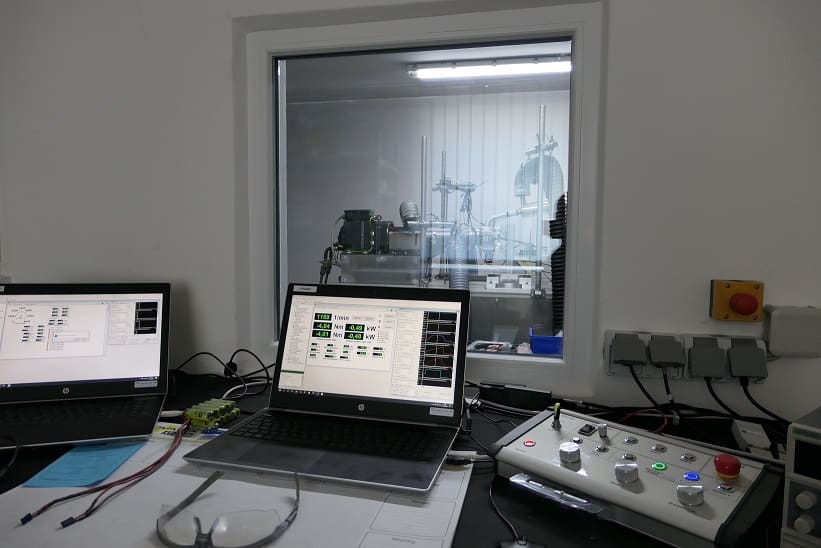

Sky Power has expanded its unmanned aerial vehicle (UAV) engine testing capabilities with the purchase of an additional engine test call and a new camera-guided Keyence 3D coordinate-measuring machine. The new acquisitions will aid the company in both ongoing production and new product development.
New engine development is carried out completely within the SolidWorks 3D CAD software. All important components are created as prototypes and pre-series parts and subsequently tested. The measurements of these initial parts must be extremely precise, and the 3D coordinate-measuring machine achieves this using infrared transmission combined with the latest optical technologies. The machine is also used to inspect incoming serial production parts, such as cylinders, to root out defects before they are assembled.
Karsten Schudt, Managing Director of Sky Power, commented: “Especially in product development, we want to achieve a high level of quality right from the start, as this enables us to minimize optimization loops during the test phase with the customer. For this reason, we decided to purchase the Keyence XM 1200 3D coordinate measuring system to check initial samples for dimensional accuracy with the 3D measuring device.”
Sky Power’s new engine test bench is used to verify basic performance data for all prototypes and pre-series, as well as for the continuous improvement of existing engines. Data for torque, power, consumption, operating temperatures and service life are documented. The water-cooled engine test bench is designed for power outputs of up to 16 kW and up to 9000 rpm.
The engine test stand was particularly important for the development of the recently introduced heavy fuel (HF) engines, enabling Sky Power to repeatedly test and compare new development steps. A propeller test bench was also utilised for this development, in order to carry out functional and quality verification.
Karsten Schudt added: “[Bench tests] enable us to determine precisely at a very early stage whether we are achieving the desired performance parameters. This is particularly important for new custom developments. We can test new developments quickly and reliably and compare the performance data collected with those of previous series.”







Related Posts
New Drone Fires Thales Missile in Unmanned Air Combat Milestone
UAS Startup Accelerator Awards 3M in Funding
US Navy Orders Unmanned Tactical Resupply Aircraft